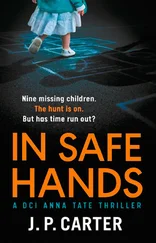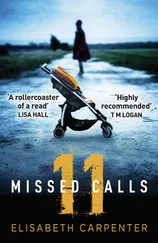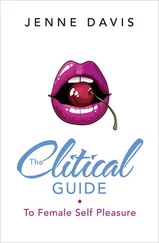In the grocery store near his apartment, the slabs of pale meat were faceless, yet somehow still sad. The sadness was in the meat. Or maybe it was in him, he couldn’t tell which: it hovered between them both, stretched taut like a cord. He watched the slices, splayed out on Styrofoam. He handled packages, made dents with his fingers in the plastic-wrapped flesh, and watched them disappear the moment he lifted his hand from the surface. When he held them he could feel the big dark spaces full of moaning life. The grocery store stocked only five or six packages of veal at a time, and he bought half of this veal and took it home. He didn’t know what he would do with it afterward. I just wanted to set it free, he said on the TV.
Michael stored veal cutlets in his fridge and left them there in the cold dark. He went to work six days a week delivering mail through slim slots. As he made his rounds, he thought about the meat shivering in stacks. Sectioned off and stunted, it still needed a guardian. When he went back to the grocery store, the veal section had regrown — as though he had never been there, had never handled the stiff bundles and brought them out into the sunlight, then back into the dark cold of the refrigerator. He bought up all the veal this time, then for weeks afterward he bought all the veal and just kept it until there was no space for the new veal. Because there was no place to store it, he began to eat it instead, this veal that would not fit, filing it away in the utter dark of the digestive tract, tucking it into himself like a parent putting a child to bed. He cooked it simply, seasoned with salt and pepper, fried in butter on the stove. The meaning of the act of saving the veal had become less clear to him even as it became easier and more natural to do.
At the same time, the grocery store had begun to keep more in stock to meet customer demand, the demand that was his alone. Now there were ten to twelve packets of veal each time he came. He couldn’t afford to buy them all, but he did anyway, burying the packages in a hole he dug in the side yard near the rhododendrons, because the fridge was full. When he had used up what was in his bank account, he snuck them out of the store under his shirt, the flat faces of the veal pressed against pale, soft stomach, slab to slab, until one day he was arrested and charged on multiple counts of theft and aggravated assault.
The smooth edges of the cutlets: as if they had just grown that way, perfect and glandless. As if they had been peeled off, gently, from a larger cutlet, a mass long and cylindrical and placid. That even, stirred-together color of the flesh, the occasional streak of pure white that trailed off the side, hinting that it had a history as something larger. Such beauty in the lack of ducts or orifices, unitary and complete, impossible to feed it or cause it pain. A pasture full of veal cutlets sitting under the sun, looking eyelessly up.
I couldn’t do anything for the calves, he said. I’m just one man. But I thought to myself: I can do something for these cutlets.
I looked over at C sitting next to me on the couch, his arm slung around my shoulders. He sucked the residue of beer from the top of the can, then ran his tongue along the crevice. C was great at watching TV. He could go for hours and never get that dead look in the face, the one B and I sometimes wore after we’d spent too long in its shifting, hypervivid light. With the remote in his hand and my head in the crook of his arm, he could pull me toward him for a kiss as easily as he could change the channel. From time to time he did this, mouthed me drily without turning his head, and his lips felt gentle on my face, like swabbing the skin with a cotton ball. C was suited to his life and to the historical period within which his life unfolded. He didn’t long to return to a simpler time, or to destroy the current time, or to build a better future. He was a happy camper. This was one of the things that made our relationship work so well: he always assumed I was happy, too, even when I wasn’t. With C, I could sit there and cycle through hurt, anger, sadness, ambivalence, acceptance, all without disturbing the comfortable rapport between us. As a result, he called me easygoing. And at times when the inner corners of my eyes burned and I knew I was about to spill, I had only to look over at him and his utterly normal grin to feel like I had grossly misread my own situation. Then whatever feeling I was feeling would hollow itself out, so that all I felt was that I no longer knew what I felt. “What you’re describing is called ‘satori,’” C would tell me with confidence. “It’s the Buddhist term for happiness, specifically for becoming unburdened. It’s like what we’d call peace. You should learn to embrace it, not think it to death,” he added.
This is happiness, I thought as the air-conditioning droned behind me like a single monstrous insect. My face tingled or was falling asleep on one side. I had hoped happiness would be warmer, cozier, more enveloping. More exciting, like one of the things that happen on TV to TV people instead of the calming numb of watching it happen. C’s limp palm was damp with sweat. Beneath it my body hairs trembled in the cold. C liked the temperature the same during the summer as it was in the winter so that he could keep wearing his favorite sweater year-round, a nubbly blue wool that was starting to give out at the elbows. I thought I saw my own breath in the frigid air, but it was probably just dust. I wriggled my shoulders around beneath his arm, trying to generate warmth, and in response he tightened his grip on me, making it harder to stir. I moved my head around, I made small sounds in my throat indicating that I had something to say. I felt sad, then unsad again. Birds settled on the old oak outside the window, settled there and waited and then left. Where had they gone, and were they better there? From indoors, watching the trees outside sag in the heat was like watching television, a little hole in the world that opened onto something entirely unrelated, trapped behind glass.
“Hey,” I said.
“Are you there?” I asked.
“Hmm,” said C.
I looked back at the TV screen. A large piece of calf was getting chopped and chopped and chopped into smaller, more numerous pieces. It resembled a thing growing out, melting, spreading across the screen.
“It’s so weird,” I said. “He wanted to keep people from eating veal, and then he ate more of it than anyone.”
C turned his head to look at me for the first time in a while.
“Or,” he said, “he wanted to eat it, and that scared him. He interpreted that fear as fear of the act, then used that more acceptable fear to reason his way back to doing what he had wanted to do all along, which was to eat it.” In his blue sweater, in the faintly blue light, he looked far away and boyish.
“I don’t know,” I said. “That’s so complicated. I thought he looked frightened. He looked sick. Did you see how he kept pulling his suit tight around him? It looked like he was thinking of the meat inside him.”
“Well, he’s also nuts,” C said calmly.
C said everybody was nuts.
I twisted my body around inside C’s hold to get a better view of the TV, flickering with color and light and sound. What was it that made one person go nuts while the rest of the world remained intact around them? I’d ask C on the next commercial break. What the cutlets want, I thought to myself. The flesh desires something different from its sum, I tried to think, but I wasn’t sure, it didn’t sound right. C’s breathing was long and slow and peaceful next to me, and I felt comforted by the fact that what was going on in his head was the same as mine: the image of Michael’s panic-tightened face on the screen threaded its way from the eyes toward the center of the head, through branching neuronal trails to a sludgy affective core. Even if we felt differently about the image and its meaning, at least it was inside us both, acting on our inner parts. Michael’s image made something claw inside of me. Sitting in his ugly chair, he radiated a pitiful and trapped energy. He clutched at the air as he described lifting the allotments of flesh from their casings, peeling them from Styrofoam trays, and laying them onto the frying pan. He described the gentleness of the meat, how it trusted, and his eyes were as wide and gelatinous as a deer’s. When Michael looked down at the imaginary cutlet in his hand, he had the face of a saint.
Читать дальше
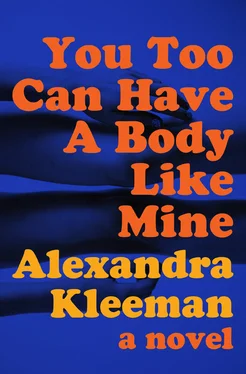

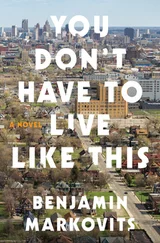
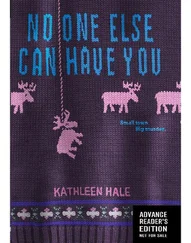
![Ally Carter - [Gallagher Girls 01] I'd Tell You I Love You But Then I'd Have to Kill You](/books/262179/ally-carter-gallagher-girls-01-i-d-tell-you-i-lo-thumb.webp)


